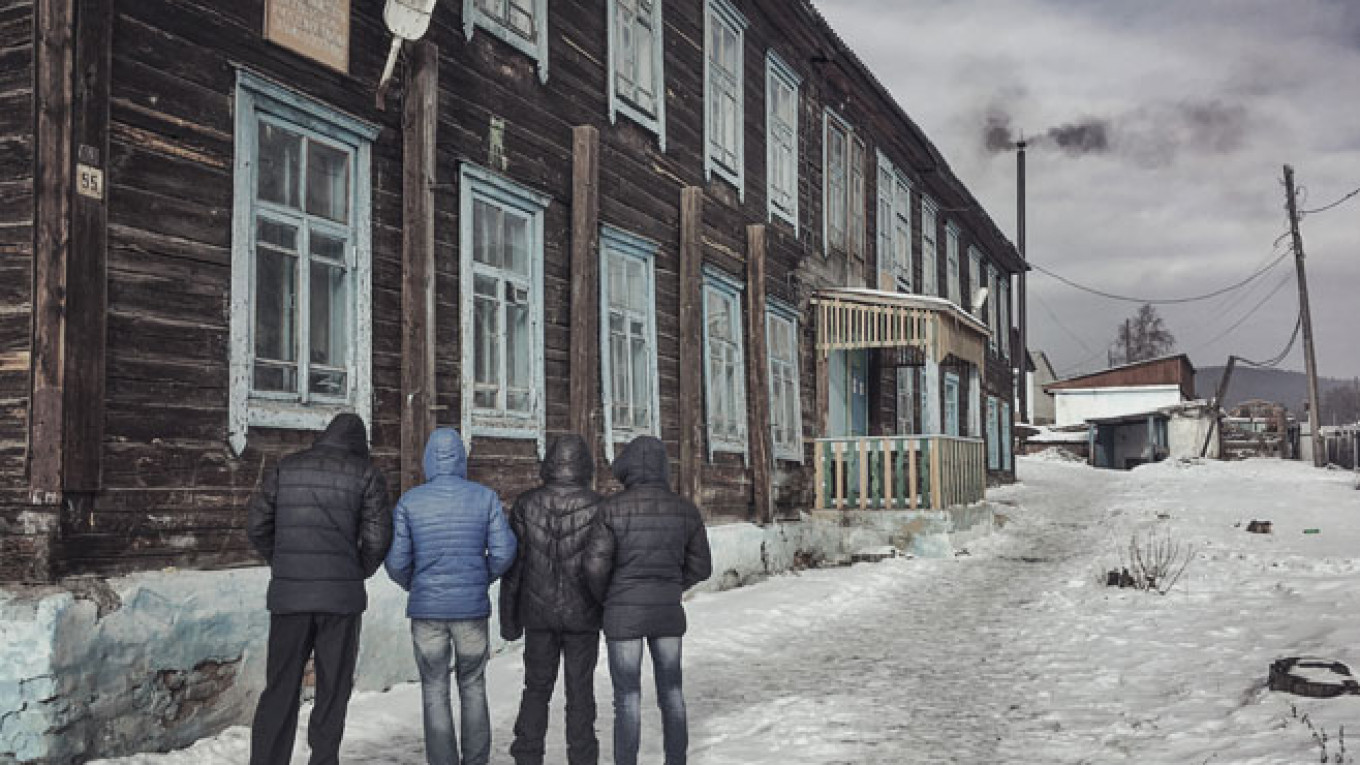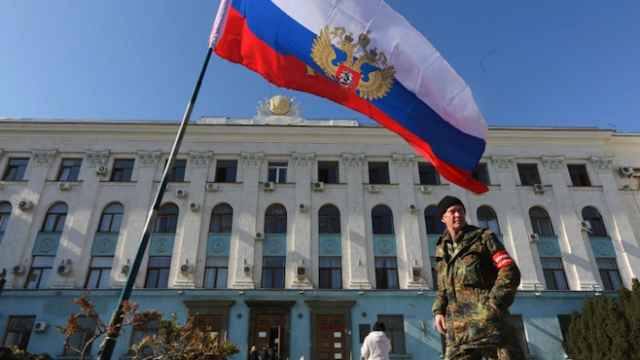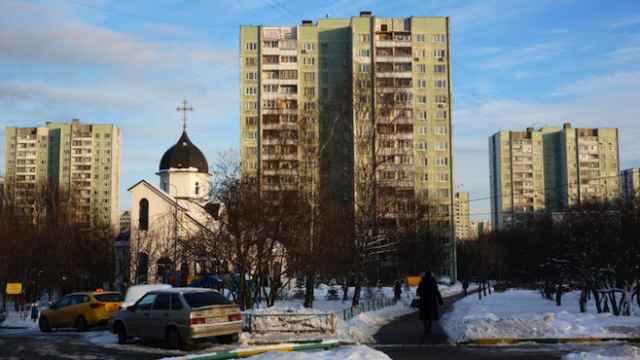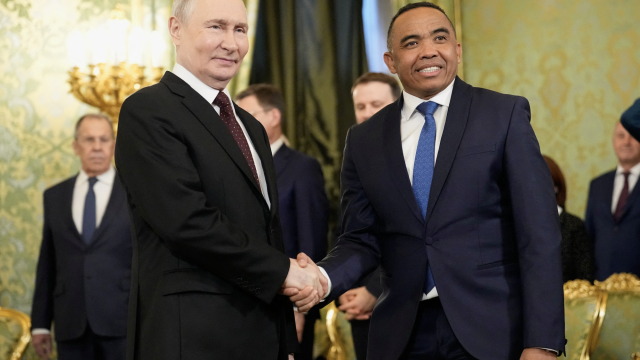The driver's voice teeters between depression and aggression.
"What kinduva life do yoo call this?!" he shouts. "Weerrall peepul … peeeeepul, for sheeettin sake! ... Fook, Ruussia, yoo make meeee want to cry!"
We veer from side to side of the snow-covered track. Outside, the mercury pushes twenty under, and the black cloak of Siberian night is falling. "Thiziz uh crrrriminal ... village" the driver says. "We had ah shoooting here ... pulice n'everything". He turns, makes a frustrated gesture, before opening his toothless mouth and releasing a putrid burst of ethanol breath.
The car jolts and the driver returns his attention to the road. He continues his story: "The prisssnurs, they had guys in the school, taking tax from the kids, for foooks sake!... 'magine?! Poor wons ad to give 100 roooubles, the middle wons, 200, and the rich wons, it's 250 rubles, fook me!"
The harsh Zabaikalsky region, some 4,000 miles from Moscow, is not, typically, a good news factory; locals do not leave their front doors in the morning expecting miracles. But two flashes of anarchy earlier this month have led some to wonder if the darkest days of Siberia's tumultuous 1990s might be returning.
The first episode, here in Novopavlovka, saw parents revert to mob law against a group of young criminals embedded in the local school. The second, in nearby Khilok, saw institutionalized teenagers attack a police station with stones and metal weapons. Separated by just a few days, the episodes were sufficiently unnerving for Moscow to send investigative teams to the region.
According to excitable local media, the root of the problems was a movement pushing youngsters into the criminal underground. This movement has its own name — AUE — standing for "Arestantsky. Uklad. Edin," or "Prison. Order. Universal."
Ground Zero
Chita, the administrative capital of Zabaikalsky, is, on first appearances, pleasant enough. A smattering of historical buildings and bustling central streets set it apart from other Russian provincial capitals. But one only has to travel to Chita's more insalubrious and jobless outskirts, to see a different picture altogether.
"The default mode on these streets is crime," says my guide, Andrei Kulikov, 37, a former convict. "Chita is built on prisons, and no one is ever more than a phone call or family member away from the underground."
We stop by School 17, an unhappy, drug-infested cluster of wooden huts on the edge of existence. School 17 has no street lighting, and utility supplies are basic, but the neighborhood is a reasonable first port for those recently released from any one of the region's ten prisons.
It is in places like this, says Andrei, that former inmates connect with keen teenage runners. The criminals call them the ragged ones, and they help with anything from drug deliveries to organizing "grev" — supplies of tea, cigarettes and cash for serving prisoners.
"This isn't the place to be walking around at night, mind," says Kulikov. "There are weapons on the street — and no one respects the understandings no more."
Towns on the Edge
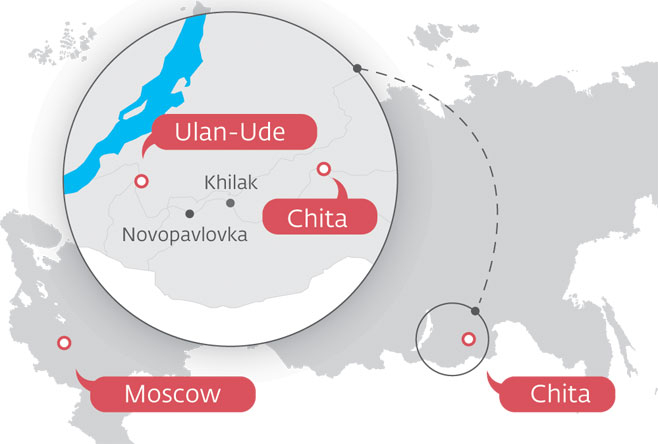
The "Understandings"
In criminal circles, the "understandings," or Russian prison code, are laws above laws. They forbid all cooperation with the police, establish an obligation to collect grev, and map out an alternative system of order and justice.
According to another former convict, Sergei Chugunov, the criminals' courts are the "fairest in all Russia." If someone has been unfairly imprisoned, he says, criminal authorities will "always" find out the truth via their networks outside. Chugunov himself spent four years serving alongside Mikhail Khodorkovsky, Chita's most famous inmate, in Krasnokamensk.
Keen to hit home the "morality" of Chita's underworld, Sergei invites me to one of its more notorious hangouts. The bar is named after Yermak Timofeyevich, the Cossack who conquered Siberia in a shower of blood.
"It doesn't matter who you are, this place will always welcome you," says Sergei. "Just don't leave your valuables in the cloakroom."
The bar's color scheme is fecal brown, interrupted only by a mirror ball and fairy lights. From time to time, the DJ, a stocky man in his late forties, makes a bizarre comment few seem to register, but which adds to the otherworldly atmosphere. "Who likes to walk around their apartment naked?" he asks.
A bottle of vodka later, and news breaks that a lynx has run into town. Another half bottle, and the DJ returns to the microphone. With a wink to Sergei, he announces the presence of an "English guest," and dedicates a chanson, a traditional song from the criminal underworld, to the moment.
By the time the first verse of "District Prosecutor" is over, everyone is dancing violently, screaming with delight:
"For you I'm no one, and for me you're no one"
"I spit at the law, you send me to prison!"
In a town so obviously pregnant with prison culture, I ask Sergei about the process of recruiting kids to the AUE cause. He denies youngsters are actively recruited: "It is against the code; you can't recruit, but you can't push away either." Besides, he argues, the "whole of Chita is AUE" — "it's a mentality."
A rough street survey of two dozen Chita schoolchildren suggested almost all knew about AUE, about the understandings and grev. A few of them admitted to contributing for grev, and some said they knew someone who did. One said a book "How to become a Thief" was doing the rounds at school.
The older children become tight-lipped when asked about AUE — refusing to answer further questions.
Several hundred Chita teenagers are subscribed to AUE groups on Russia's most popular social network VKontakte. When contacted, the majority offered laconic responses replete with profanity. One 17-year-old AUE follower, Dmitry F., warned against unwelcome interfering. No one would speak to me, he said: "That's the deal. We didn't start this, but we'll finish it. Take my advice, you'll be better off that way."
A Village at War
If Chita's AUE teens want to stay in the shadows, the other side, understandably, are even keener to preserve anonymity.
"I want you to write everything down, but you must promise to change my name," says Lyudmila, one of Novopavlovka's 4,000 residents. "You can't imagine what we've come to. We're at war, terrorized by these kids, by their parents."
It has been three weeks since Novopavlovka residents saw their village shoot to the top of national news. It all started when a group of teenagers, working under a local criminal boss, began extorting grev payments in the local secondary school. Payments were set between 100 and 250 rubles per month per child. Those who couldn't pay accrued debts.
The children were sworn to secrecy, but parents eventually found out.
The turning point came around the new year, when one indebted 13-year-old boy was stripped of his coat, on a day when the temperature outside was minus 40 degrees Celsius. One of the boy's classmates decided to raise the alarm, and told his father, Ivan, what was going on.
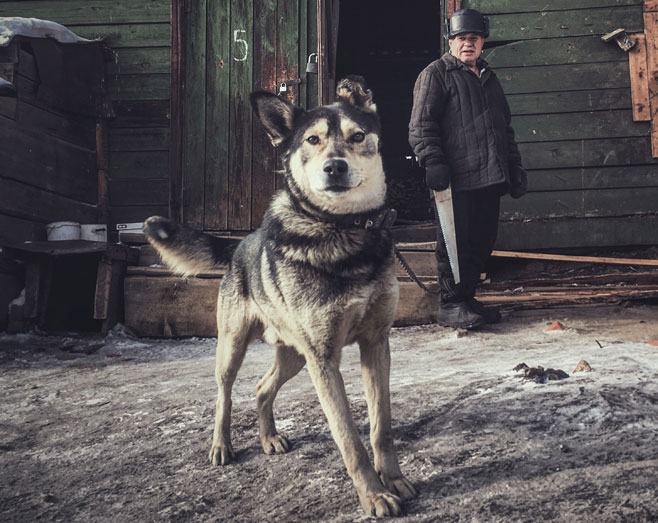
The extortioners were well-known to police, but had dodged prosecution because of their age. Over the years, they had developed a sense of invincibility, and things looked to be going the same way again.
At the end of January, however, a group of parents led by Ivan took matters into their own hands.
The results of their action left several of the gang with injuries, though Ivan says reports of him inflicting "serious injuries" on the boys are exaggerated. "It's said that we crippled a 17-year-old … The maximum we did was break a nose or two." Ivan says the physical showdown was initiated by the boys themselves, when they challenged his son to a fight.
The AUE boys, however, went to the police to file a complaint, and now the vigilante parents are anxiously waiting to hear whether they will be prosecuted themselves.
According to Lyudmila, about 40 percent of the village youngsters are AUE: "The only thing our village gave them is hopelessness, but the criminals made them feel wanted. Children sense when they aren't wanted."
Putin's Children
The harshness of Siberian life hits home when we make our way to the neighboring town, Khilok (population 10,000). Set in beautiful snow-covered hills and conifer forests, Khilok could be in Switzerland, were it not for everything else. Most locals live in damp, unforgiving wooden huts, without heating or water. Pensioners and children wheel water cans along the streets.
"We know its shitty living but we're resilient and we've got used to life's little hardships," says Yury Lukyanov, 62, a railway worker now on his pension. "It's the crime we can't cope with."
Like the majority of residents, Yury says he is unnerved by the boys from the state juvenile correctional school on the northern edge of town. He says he is scared to go out at night, and complains of unrelenting robberies. "If you leave the house unattended, they'll come around to steal something," says Yury. "They watch and gather intelligence for more serious criminals too."
Yury says locals are infuriated the youngsters appear to live both above the law, and better than the rest of the town: "They get fresh fruit and vegetables, more than our kids could dream about. And yet 17 of them head off to trash the police station!"
"These kids are untouchable" he says. "You can't put them in prison and you can't arrest them. Because they're protected by the state. Because they're Putin's children."
Syria? No Problem!
After negotiations through a fence, we meet with four of "Putin's children" — Sasha, Seryoga, Ilya and Lyokha — all of them protagonists of the police station rampage.
So were they brave or just dumb? "Brave," they say in chorus, laughing. "The pigs started it anyway," says Lyokha. "They arrested our mate, and that's not on." Their friend's only crime was being drunk at school, they say.
The boys admit to being attracted by the romance of prison culture — the tattoos and the understandings. But when asked about AUE, they look to the ground and claim ignorance.
As for the future, well that is a choice between crime and the army. "It's not a bad career in the army right now," says Lyokha. "Yeah, I'd have no problems going to Syria," agrees Seryoga.
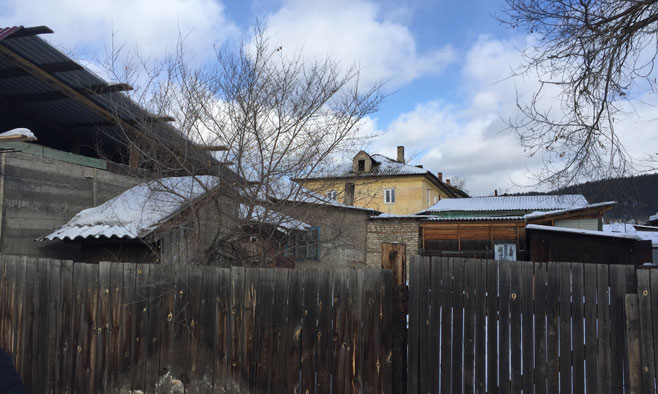
AUE and other criminal themed graffiti can be found all over the Zabaikalsky region
We say our goodbyes and head for the local restaurant. The menu is limited: fried sausage, buckwheat, chocolate, vodka and cognac. "Soup might be on later," says the waitress. We opt for the cognac.
"You're here about the boys, aren't you?" says a woman, a rare voice in a town that doesn't speak. She moves closer to our table. "I'm a dermatologist, I used to work at the school and I can tell you they are out of control. Every year, we'd get several cases of syphilis. In 13 year olds!"
The woman drops to a whisper. "You ask anyone — they're terrified of them boys. They only know how to rob. They've started stealing sticks and garden equipment. God only knows what they're planning."
The last stop of the evening is the police station, where the story began. When we arrive, seven officers are sitting behind the metal grill in various states of blankness. Some are reading magazines, some drinking tea. Others are filling out crossword puzzles.
I knock on the window, and ask if I can get a comment. The receiving officer looks at me, then at his colleagues.
"There's no one who can talk to you here," he says.
A Message to Nowhere
Pursuit of an official commentary turns into a fruitless ring-a-roses around the regional offices of official government bodies.
Eventually, the region's deputy governor agrees to meet. A doctor by profession, Sergei Chaban was happy to see me, he said, provided I was "objective in my reporting."
The local authorities understood the problem: "We're not ostriches burying our heads in the sand — it's there, we don't deny it exists, we see the graffiti around." But, he says, the media reports of a widespread AUE system were exaggerated. "There are individual episodes of criminals recruiting youngsters to the cause … but overall, juvenile crime is on the way down ... down by 20 percent over the last two years."
For Chaban, one solution would be to re-militarize the region. Until recently, Chita was the headquarters of the Siberian Military District, but a reorganization in 2010 saw resources move to the Far East Khabarovsk region, leaving the region's teenagers short on legitimate male role models.
The deputy governor says the government is looking to open new military, patriotic and sporting programs in the region. "We have just opened a new elite Suvorov military training academy," he says. "We hope boys can now start talking to military men, not criminals."
Roman Sukachyov, head of the region's Human Rights Center, is less confident about the governmental approach. He says tackling a problem like AUE requires "dealing with an entire philosophy" that permeates official life. "It's difficult to reduce the influence of criminal ideology when the [state-sponsored] Channel 2 put on a criminal chanson special on New Year's Eve," he says.
The regional government also needed to "get real" about the extent local police chiefs were cooperating with criminals. To demonstrate his point, Sukachyov plays me a video of a joint drinking session between a head of the local criminal police and a criminal underboss. "The whole system is intertwined: Police agree rules with crime bosses, and there is little local populations can do about it," he says.
Some locals seem to have given up on the power of government. The Novopavlovka parents, for example, say they have decided to take their problem to "higher instances." "The criminals' own rules say that you aren't supposed to involve the police," says Ivan. "So we've decided to make our own connection a little further up their chain of command."
"The only way our village can start sleeping soundly is if the criminal authorities put people back in their place."
Some identities and identifying features have been changed.
Contact the author at [email protected]
A Message from The Moscow Times:
Dear readers,
We are facing unprecedented challenges. Russia's Prosecutor General's Office has designated The Moscow Times as an "undesirable" organization, criminalizing our work and putting our staff at risk of prosecution. This follows our earlier unjust labeling as a "foreign agent."
These actions are direct attempts to silence independent journalism in Russia. The authorities claim our work "discredits the decisions of the Russian leadership." We see things differently: we strive to provide accurate, unbiased reporting on Russia.
We, the journalists of The Moscow Times, refuse to be silenced. But to continue our work, we need your help.
Your support, no matter how small, makes a world of difference. If you can, please support us monthly starting from just $2. It's quick to set up, and every contribution makes a significant impact.
By supporting The Moscow Times, you're defending open, independent journalism in the face of repression. Thank you for standing with us.
Remind me later.


